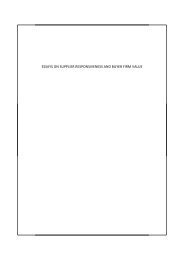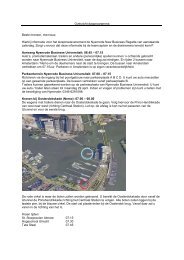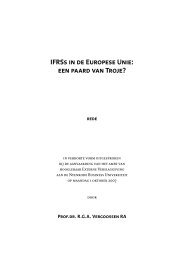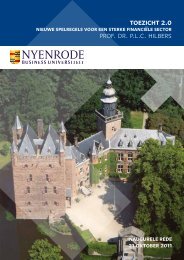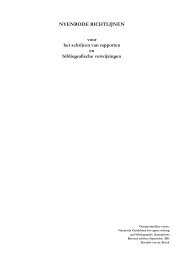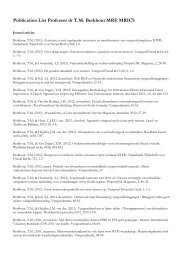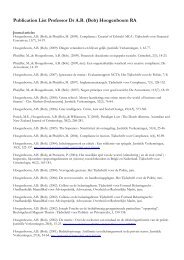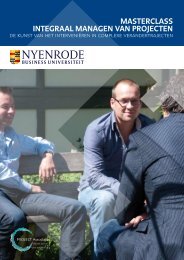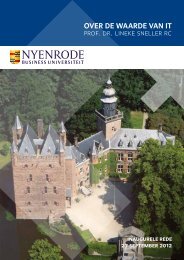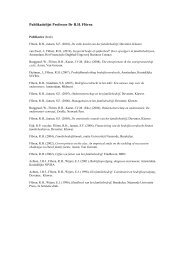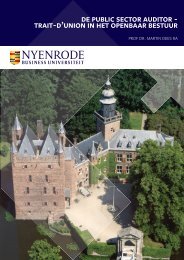pdf - Nyenrode Business Universiteit
pdf - Nyenrode Business Universiteit
pdf - Nyenrode Business Universiteit
You also want an ePaper? Increase the reach of your titles
YUMPU automatically turns print PDFs into web optimized ePapers that Google loves.
126 CHAPTER 5. CONCLUSION<br />
5.3 Limitations and Suggestions for Further Research<br />
As any study, the research presented in this thesis is subject to a number of limitations. In<br />
this subsection, I discuss the limitations that I consider to be the most important for my<br />
study. These limitations include the drawback of studying control instruments in isolation,<br />
the potential issues caused by using survey data in terms of causality, and the quality of<br />
the measurement. These limitations and their consequences are discussed in the remainder<br />
of this chapter.<br />
5.3.1 Studying Control Instruments in Isolation<br />
Although RPE is part of a Management Control System that consists of many control<br />
instruments, this research project studies RPE as an isolated control instrument. I do so<br />
because of the design of the study in general and of the questionnaire in particular. Because<br />
I focus on a single control instrument, I do not have data (or theory) on other potential<br />
control instruments that are used, for example, to reduce noise in the performance evaluation<br />
or mitigate the room for managerial opportunism. This lack of data may affect the<br />
results of this study. According to Chenhall (2003), one drawback of studying the specific<br />
elements of a control system in isolation from the other organizational controls potentially<br />
leads to model underspecification.<br />
Although I acknowledge Chenhall’s warning, I deem it necessary to study this specific instrument<br />
in isolation first before taking on a more holistic approach. My study is one of<br />
the first to investigate RPE at the lower echelons. Before this study, we had little empirical<br />
understanding of how RPE works in the evaluation and compensation praxis of business<br />
unit managers. A focused study that analyses a single control instrument can invest the<br />
ample space and time that is required to approach the instrument with multiple measures<br />
and perspectives. Doing so is necessary to obtain a deeper understanding of the subject<br />
matter, which will, for example, allow one to establish measures that can be incorporated<br />
into other studies with broader scopes. Nonetheless, studying the interaction of RPE with<br />
other control instruments within the control system is an important next step to understanding<br />
RPE. This analysis may shed more light on the theories adopted throughout this<br />
thesis. This thesis leaves the holistic study of the role of RPE in the control system to<br />
future research.




